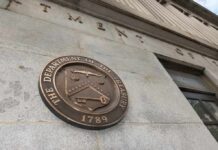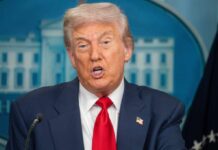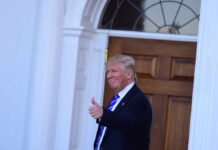
Federal investigators are demanding answers after the University of Michigan allegedly failed to report over $270 million in foreign funding, raising urgent questions about national security and transparency in American higher education.
Story Highlights
- University of Michigan faces a federal probe for unreported foreign funding exceeding $270 million from 38 countries
- The investigation follows a Trump administration executive order enforcing stricter university disclosure rules
- Concerns have intensified over national security and foreign influence, especially in light of recent criminal cases involving Chinese scientists at UM
- The Department of Education demands full documentation, with broader implications for research integrity and U.S. sovereignty
Federal Scrutiny on University of Michigan’s Foreign Funding
The U.S. Department of Education has launched a sweeping investigation into the University of Michigan (UM) for allegedly failing to accurately disclose more than $270 million in foreign funding received from 38 different countries over the past decade. The probe, formalized on July 15, 2025, requires UM to provide comprehensive documentation—including tax records, personnel lists, and detailed contracts—within 30 days to determine if federal disclosure laws were violated. Department officials cite significant lapses, highlighting incomplete, inaccurate, and untimely disclosures that have left the university vulnerable to potential malign foreign influence, particularly from China, Japan, South Korea, and Hong Kong.
Watch: University of Michigan faces federal investigation
The scale of unreported funding has triggered alarm, especially as UM is one of the nation’s top research institutions, with over $2 billion in annual research expenditures and substantial federal funding. The investigation is not isolated—other major universities have faced similar scrutiny, but the magnitude and breadth of UM’s foreign funding, as well as the number of countries involved, make this case particularly consequential for policymakers and the public.
National Security and Research Integrity at Stake
The investigation comes in the wake of President Trump’s April 23, 2025 executive order, which mandated stricter enforcement of foreign funding disclosure requirements across all U.S. universities. This policy shift underscores a renewed federal commitment to transparency and the protection of American institutions from undue foreign influence—an issue conservatives have warned about for years. Recent criminal cases involving Chinese scientists at UM, including charges of smuggling biological materials, have brought even greater urgency to the probe, raising fears about the security of sensitive research funded by U.S. taxpayers. The Department of Education’s chief investigative counsel, Paul R. Moore, has stressed that thorough and timely disclosure is essential both to upholding the law and safeguarding national interests.
UM’s leadership, under interim president Domenico Grasso, has so far refrained from issuing a substantive public response. The university now faces a tight deadline to provide detailed records, and federal officials have indicated the investigation may expand if further irregularities are uncovered. The consequences for noncompliance could include federal penalties, restrictions on research funding, and long-lasting reputational damage—not just for UM, but for the broader landscape of American higher education.
Broader Implications for American Universities
This investigation is the latest escalation in a nationwide effort to enforce laws requiring U.S. universities to disclose foreign gifts and contracts of $250,000 or more. The Higher Education Act’s Section 117 has been on the books since 1965, but enforcement was historically lax until recent years, when concerns over Chinese espionage, intellectual property theft, and the erosion of American research security became impossible to ignore. Nonetheless, the law is clear: universities must report substantial foreign funding, and repeated failures erode public trust and threaten U.S. sovereignty.
Sources:
Campus Reform
The Daily Wire
U.S. Department of Education press release
Inside Higher Ed
Bridge Michigan

























